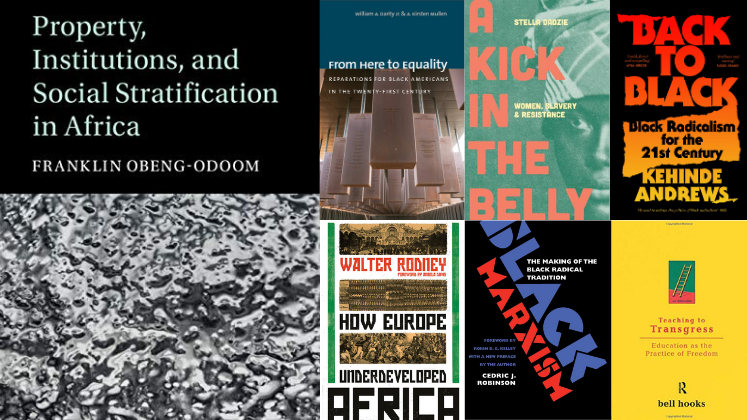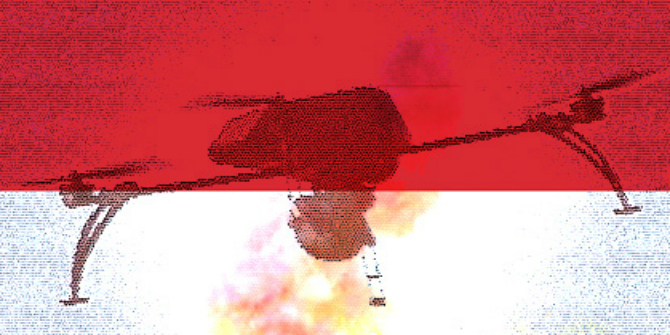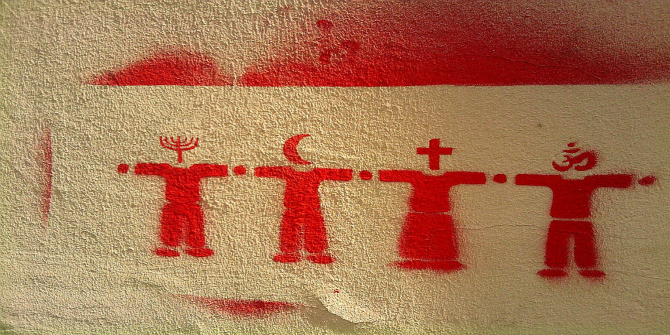 Syria’s 1970 bloodless coup by General Hafez al-Assad put in place a powerful autocratic machinery at the core of the state which continues under the control of his son Bashar. Power and Policy in Syria presents an analysis of Syria’s political structure: a ‘despotic’ state monopoly, a bureaucratic climate marked by fear, and an administrative structure through which centralized control is exercised. Andreas Aagaard Nøhr finds that this book’s value lies in the bold boundaries it attempts to push rather than its ultimate conclusion.
Syria’s 1970 bloodless coup by General Hafez al-Assad put in place a powerful autocratic machinery at the core of the state which continues under the control of his son Bashar. Power and Policy in Syria presents an analysis of Syria’s political structure: a ‘despotic’ state monopoly, a bureaucratic climate marked by fear, and an administrative structure through which centralized control is exercised. Andreas Aagaard Nøhr finds that this book’s value lies in the bold boundaries it attempts to push rather than its ultimate conclusion.

Since March 2011 the situation in Syria has been worsening day by day. The UN is now describing it as a humanitarian crisis that is “dramatic beyond description” – with well beyond four million people displaced either internally or in neighbouring countries. The civil war has intensified without any decisive outcomes while international society has been perplexed by the intervention dilemma; recent reports of the use of chemical weapons against the Syrian population might just resolve such dilemmas and provoke a military response. Yet, the reports also paint an ever-darker picture of the strong desire to maintain power within the regime. A question that seems reasonable to ask is thus: how did it come to this – what political structures have to be in place to produce such a terrible state of affairs?
This is main theme of Power and Policy in Syria by Radwan Ziadeh, a Syrian national who since 2007 has been in political exile in the US. He is the founding director of the Syrian Center for Political and Strategic Studies and has been affiliated with the United States Institute of Peace where he was a Senior Fellow. In 2009 he received the MESA Academic Freedom Award. More importantly however is his association with the Damascus Spring and the Syrian political milieu: he is not just another reflective and passive bystander, but is and has been an active party in the Syrian opposition movement; he has – literary with the pen in his hand – risked his own security in his fight against the regime.
The book opens with a clear prediction based on an analogy with the sweeping democratization of Eastern Europe in the 1990s and especially Ceausescu’s Romania – his belief that Romania would go free: “the Assad regime will eventually be forced to leave, despite the little support the Free Syrian Army … has had from the west. The determination of the freedom fighters will make an end of the Assad regime purely a matter of time.” (xvii) To Ziadeh there is no doubt; the Syrian opposition movement will prevail, but what then? To form a reasonable future, Syria must face and learn from its past.
The book consists of five chapters, each analysing the different aspects of the political structures of Syria. The first tells the story of the rise of the Third Republic and Syrian Authoritarianism: the pyramid structure of party, governmental administration, and intelligence agencies that all lead up to the presidency. The second chapter considers the transfer of power from father to son; the third, a short chapter, engages with the short-lived Damascus Spring of 2001. The fourth is a chapter on Bashar al-Assad’s foreign policy and relation to the west. The last chapter engages with the story and future challenges of political Islam in Syria. The book is written in an academic style but never dives too deeply into theoretical debates, communicating its points in easily comprehensible language.
The book of course is not without some questionable points: for one, Ziadeh perhaps too easily gets away with explaining ‘who governs?’ in Syria by saying that the power structure under Hafez al-Assad remained largely unchanged when Bashar took power; it is merely a “difference of degree not substance” (p.53-53). Yet, it has been hard for scholars to determine how the internal power games between the ‘old guard’ and Bashar have been played out. There is sometimes a degree of looseness in terminology where the author fails to distinguish between an authoritarian or totalitarian regime (see p.1 and p.24); there is a difference and Syria has definitely not been both. Lastly, the absence of a concluding chapter that ties the different aspects of Syrian politics and history together would be greatly welcomed by this reviewer at least.
The book is perhaps more valuable for the bold boundaries it attempts to push than for the conclusions it reaches. What Ziadeh does – and which has not been unproblematic to do in Syria since the Baath took power in 1963 – is to tell the truth about Syrian politics as he sees it, and it is this practice of truth-telling about the conditions in Syria and why they should be changed that is most rare and important. I am not here thinking of Truth with a capital T, but rather the practice of truth-telling: the small and big truths that are told about politics, embedded in the social fabric and essential to any act of government to function well. It is guaranteed not by any particular rationale (or truth), but by the courage of an individual that reproaches the prevailing public opinions, or the self-indulgent and dissolute dictator, and speaks the truth.
It is often said about politics in the Middle East, Ziahed writes, that “the jungle hides what it hides” (p.39). Indeed, the political ‘animals’ in the Syrian jungle have long hidden many things; most of all they have hidden truth. In Syria, truth – or to utter it, let alone to live your version of it – carries a cost; it has been under the threat of arrest, torture and even death that some Syrian citizens have insisted on telling the truth. Syrians have long learned that in most cases the courage of these citizens is not respected; instead the raw unmasked power – the intelligence and security agencies – of the Assad regime has dominated truth and defined an existence where difference is impossible. It is all but surprising that they now have taken up arms.
———————————————————————
Andreas Aagaard Nøhr is Commissioning Editor for e-IR and an Editorial Assistant for the Interdisciplinary Journal of International Studies. He has a bachelor in Political Science from Aalborg University, an MScEcon International Relations with distinction from Aberystwyth University, and currently writing his dissertation for an MSc in Development and International Relations from Aalborg University. Read more reviews by Andreas.








1 Comments